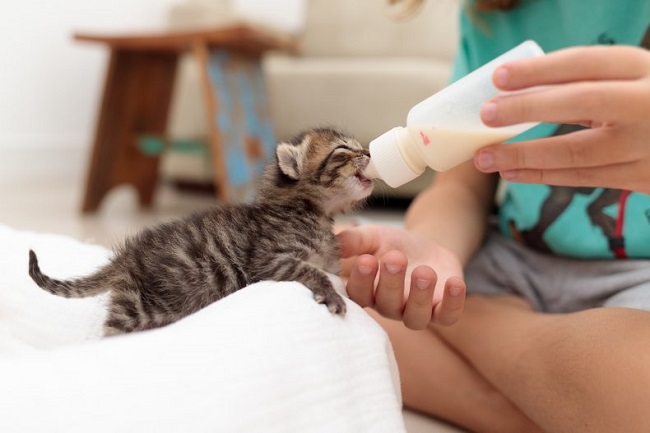Kittens are undeniably adorable, and as new owners, we want to ensure they receive the best care and nutrition. One common question that arises is whether kittens drink milk.
In this comprehensive guide, we’ll delve into the topic, exploring the nutritional needs of kittens, the role of milk in their diet, and alternative feeding options that promote their optimal growth and well-being.

Understanding Kitten Nutrition
Before we discuss the topic of kittens and milk, it’s important to understand the nutritional needs of kittens. Newborn kittens are entirely dependent on their mother’s milk for the first few weeks of life. As they grow, their nutritional requirements change, and they transition to solid foods.
The Role of Mother’s Milk
Mother’s milk is essential for newborn kittens as it provides vital nutrients and antibodies that support their growth and immune system development. Mother’s milk is specifically formulated to meet all the nutritional needs of kittens during the early stages of life.
Can Kittens Drink Cow’s Milk?
Contrary to popular belief, cow’s milk is not suitable for kittens. Cow’s milk lacks the necessary nutrients kittens require, and it can cause digestive upset and diarrhea due to its lactose content. Feeding cow’s milk to kittens can lead to nutritional deficiencies and health issues.
Milk Replacements for Kittens
If a kitten is orphaned or unable to nurse from its mother, special kitten milk replacers are available. These milk replacers are specifically formulated to provide the necessary nutrients kittens need for healthy growth and development. They are readily available at pet stores and are safe alternatives to mother’s milk.
Weaning and Introduction to Solid Foods
Around 4 to 6 weeks of age, kittens begin the weaning process, which involves introducing them to solid foods. During this phase, it’s important to gradually transition them from milk to a balanced kitten diet.
High-quality commercial kitten food provides the essential nutrients kittens need, including proteins, fats, vitamins, and minerals.
Water as the Primary Source of Hydration
As kittens transition to solid foods, it’s crucial to provide them with access to fresh, clean water. Water should be available at all times to ensure proper hydration, especially as kittens’ reliance on milk decreases.
Consult with a Veterinarian
Every kitten is unique, and their nutritional needs may vary based on factors such as breed, health, and development.
It’s always a good idea to consult with a veterinarian who can provide personalized advice and guidance regarding your kitten’s specific nutritional requirements.
Conclusion
In conclusion, while newborn kittens rely on their mother’s milk, cow’s milk is not suitable for them. Cow’s milk lacks essential nutrients and can cause digestive issues in kittens.
Instead, special kitten milk replacers are available for orphaned or hand-reared kittens. As kittens grow, they should be gradually transitioned to a balanced kitten diet, consisting of high-quality commercial kitten food.
Fresh water should be provided alongside solid foods to ensure proper hydration. Remember to consult with a veterinarian for personalized guidance on providing optimal nutrition for your kitten’s specific needs.
























